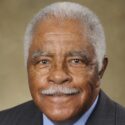District attorney Jim Woodwall has asked the North Carolina State Bureau of Investigation to launch a probe into alleged fraud in the African and Afro American studies program at the University of North Carolina at Chapel Hill. Among the allegations are that professors were paid for courses that did not actually meet and grades were awarded to students who took classes that never met. In addition, an internal audit found 43 courses with nearly 600 registered students where the instructor provided an assignment and graded students but engaged in limited or no classroom instruction. Other grade forms were submitted where faculty signatures were forged. Changes were made to grades that were not authorized by the faculty members who taught the course.
 Many of the allegations involve former department chairman Julius Nyang’oro, who resigned from that post in September. Nyang’oro is retiring from the university as of July 1.
Many of the allegations involve former department chairman Julius Nyang’oro, who resigned from that post in September. Nyang’oro is retiring from the university as of July 1.
Professor Nyang’oro has taught at the university since 1988. He is a graduate of the University of Dar es Salaam in Tanzania. He holds a law degree from Duke University and a master’s degree and Ph.D. in political science from Miami University of Ohio.












If the allegations are found to be true, chair and dean were derelict in their responsibilities. This is the epitome of intellectual laziness that may exist while teaching on line without the proper protocol to supervise instructors. Who is responsible for monitoring whether classes are met? Are these “independent courses” or on-line? This intellectual dishonesty gives new meaning to “asynchronous learning”!
Chancellor Thorp should initiate an audit to see if this problem is pervasive and not just isolated to the Black Studies Program. The pundits who believe that such programs should not exist, must be having a field day. Once the inquiry is over, that information should also be available to North Carolina taxpayers. President Ross should inform the public of any findings related to this inquiry.
In the meantime, we will sit and await for those findings.
Online courses without the appropriate protocols, oversight and the $$$$ that they produce should be a major part of the inquiry.
African/African American Studies is a legitimate area of study but the question of how higherups might be asleep at the switch could be the drop in the lake which initiates a profound ripple effect.
It will be interesting to learn which students and or programs benefitted if the allegations are true.